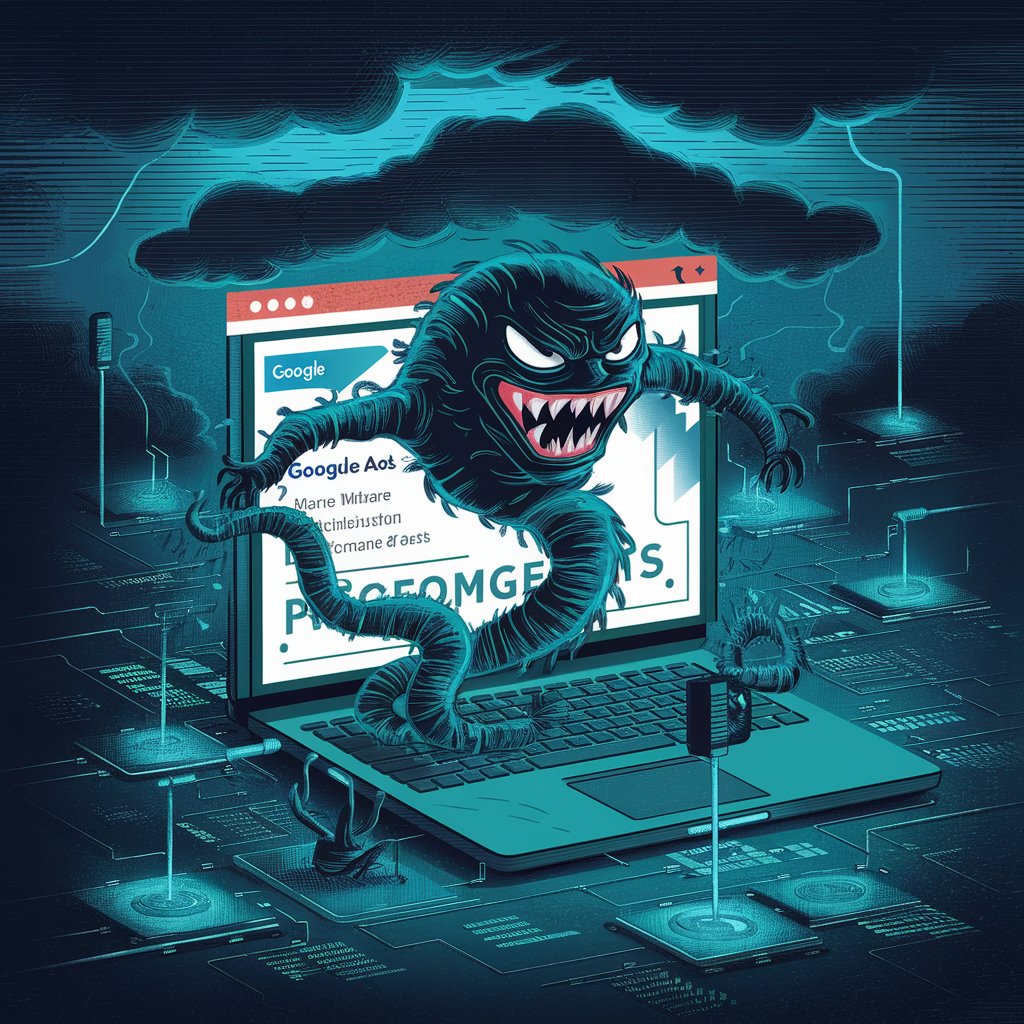 Home »
Home » 
Stay Informed: The Latest on Google Ad Security
With cybercriminals constantly evolving their tactics, staying informed about the latest threats and how to protect yourself is crucial. In this post, we'll explore how malware is being distributed through Google ads, the consequences of these attacks, and actionable steps you can take to stay safe.
How malware Is distributed through Google Ads ????
Cybercriminals often use Google ads to distribute malware, tricking users into downloading malicious software that can cause significant harm. Here are some examples of recent malware campaigns:
1. Fake Google Authenticator app
Recently, hackers have been abusing Google ads to impersonate Google, tricking users into downloading malware-laden Google Authenticator on GitHub. The ads appear to be verified by Google.
2. Malware disguised as Notion, Slack, Trello and GoodNotes
The AhnLab Security Intelligence Center (ASEC) discovered a strain of malware that leverages Google ad tracking to distribute malicious files. This malware masquerades as an installer for popular programs like Notion, Slack, Trello, and GoodNotes. Once installed, it downloads malicious payloads from the attacker's server.
3. RedLine Infostealer via fake WindowsReport Site
A well-known media publication, WindowsReport, has been exploited through Google Ads to distribute the RedLine infostealer malware. Malwarebytes found a fake WindowsReport website hosted on nearly a dozen domains, where scammers hosted a Trojanized version of CPU-Z. This malware can exfiltrate system data, stored passwords, payment information, cookies, and cryptocurrency wallet information.
4. Google Ads targeting KeePass users
In a recent malvertising campaign, cybercriminals used a deceptive Google ad for KeePass, the open-source password manager. They registered an internationalized copycat domain name using Punycode to impersonate the real KeePass site. The ad displayed the official KeePass logo and URL and appeared before the legitimate site's organic search results.
The consequences of malware attacks ????
Malware attacks can have severe consequences for users and organizations, including:
- Financial loss: In 2023, 81% of organizations faced malware attacks. Additionally, malware appeared in 40% of data breaches, resulting in a total global cost of $30 billion.
- Loss of valuable data: Cybercriminals can steal sensitive information, leading to significant financial damage.
- Disruption of services: Malware can cripple systems, affecting productivity and resulting in significant economic losses.
- Reputation damage: Organizations can suffer long-term reputational damage, losing customer trust and credibility.

How can we stay protected against malware in Google ads? ????️
With cybercriminals developing more sophisticated techniques, taking preventative measures to protect yourself is essential. Here are some tips:
1. Avoid clicking on sponsored links or ads
Verify the authenticity of links before clicking to avoid compromising the security of sensitive information.
2. Manually type in web addresses
Manually typing in web addresses ensures you access the correct sites and avoid being redirected to malicious websites through compromised links.
3. Check URLs before clicking
Carefully checking URLs involves:
- Checking the domain's spelling.
- Looking for security signs such as "https."
- Ensuring that the address matches the website you intend to visit.
4. Configure your browser correctly
Configuring your browser's privacy and security settings can help you block potentially dangerous ads. This includes:
- Enabling built-in ad blockers.
- Restricting data tracking.
- Using trusted security extensions.
5. Use an effective AdBlocker
Although some ad blockers do not have antivirus or anti-malware features, an effective ad blocker such as Stands AdBlocker can help reduce encounters with all types of ads, including those containing malicious code.
Let's recap! ????
Cybercriminals increasingly use advanced and creative techniques to distribute malware through Google ads. Therefore, as Google users, we must take preventative measures to stay safe online. What protection measures have you found most effective?
Stay safe and informed! ????
